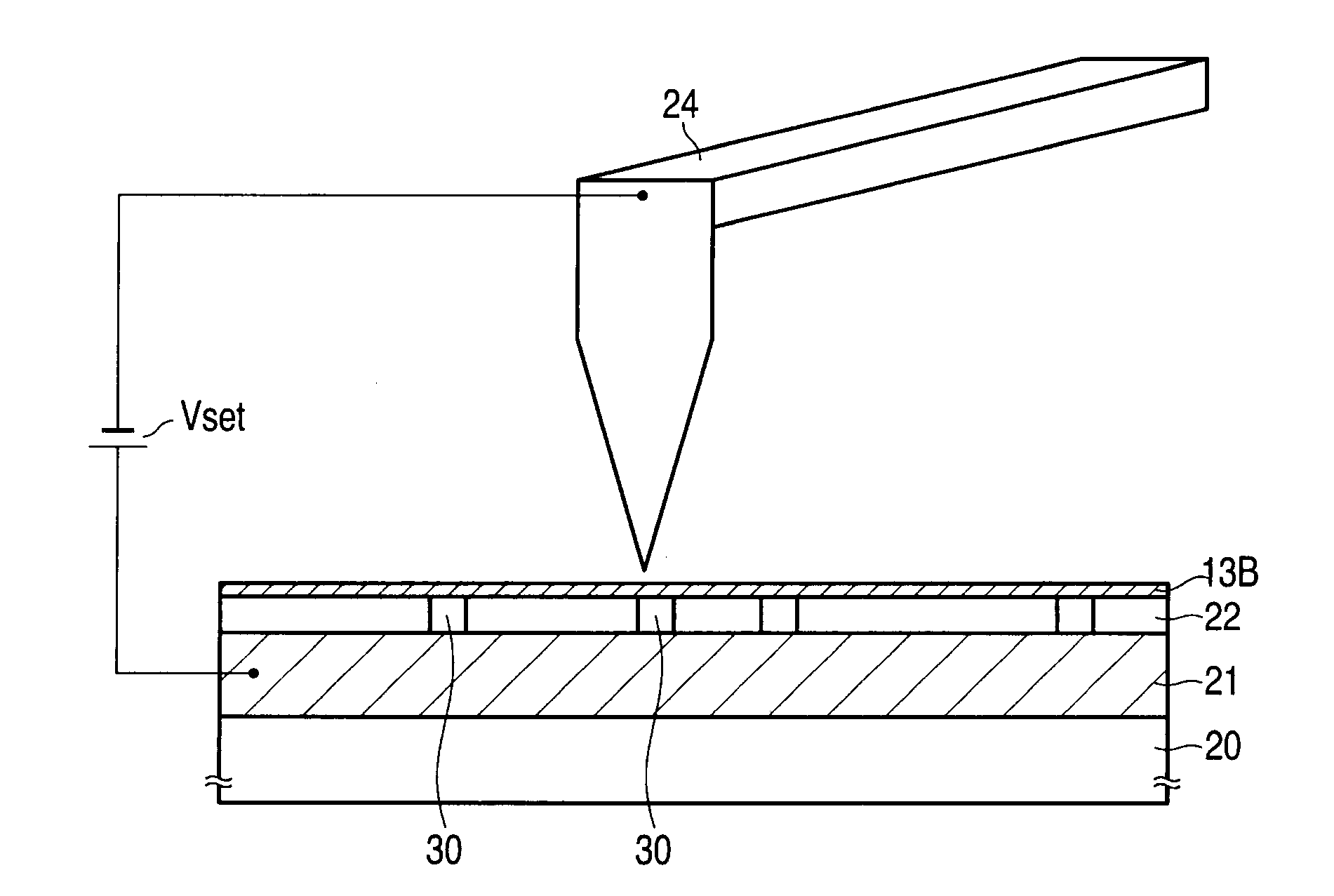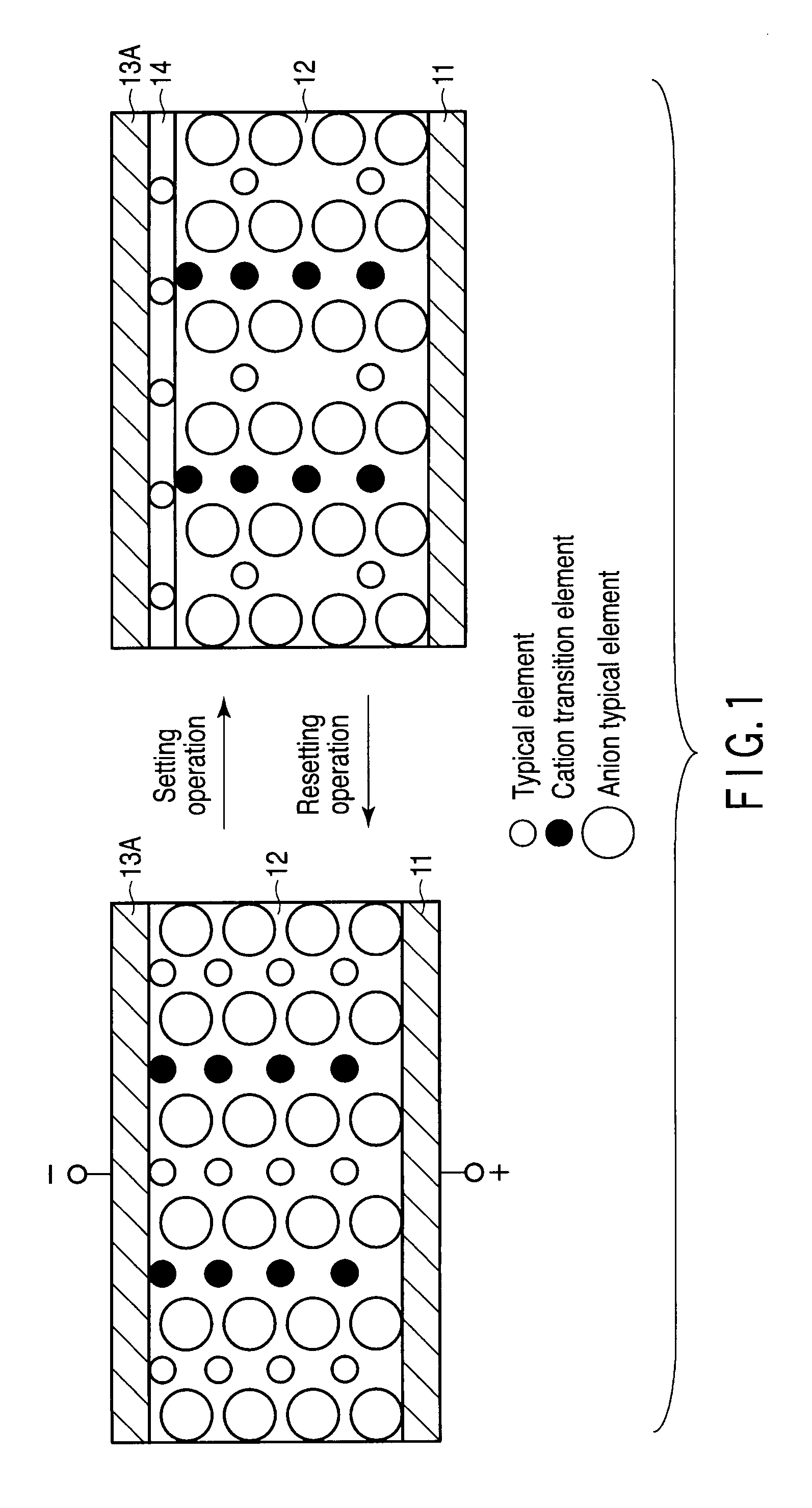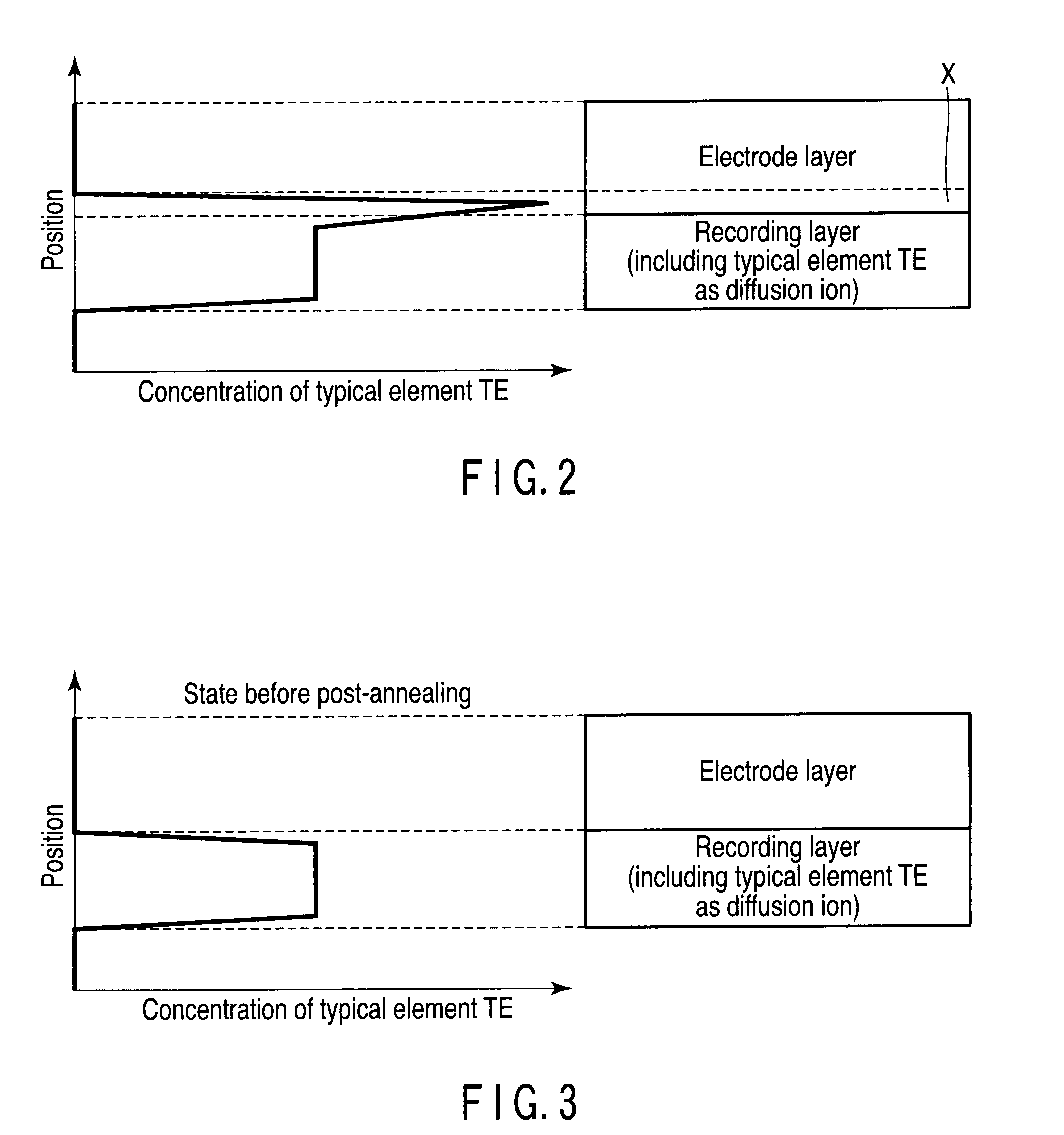Information recording and reproducing device
a recording and information technology, applied in the field of information recording and reproducing devices, can solve the problems of increasing process costs, limiting recording density, and generating limit of tracking accuracy, and achieve the effect of high recording density
- Summary
- Abstract
- Description
- Claims
- Application Information
AI Technical Summary
Benefits of technology
Problems solved by technology
Method used
Image
Examples
Embodiment Construction
n">[0022]FIG. 12 is a view illustrating a cross-point type solid-state memory.
[0023]FIGS. 13 to 15 are views, each illustrating a structure of a memory cell array.
[0024]FIGS. 16 to 20 are views, each illustrating a structure of a memory cell.
[0025]FIG. 21 is a view illustrating an example of application to a flash memory.
[0026]FIG. 22 is a circuit diagram illustrating a NAND cell unit.
[0027]FIGS. 23 to 25 are views, each illustrating a structure of a NAND cell unit.
[0028]FIG. 26 is a circuit diagram illustrating a NOR cell.
[0029]FIG. 27 is a view illustrating a structure of the NOR cell.
[0030]FIG. 28 is a circuit diagram illustrating a two-transistor cell unit.
[0031]FIGS. 29 and 30 are views, each illustrating a structure of the two-transistor cell unit.
DETAILED DESCRIPTION
[0032]An exemplary embodiment of the invention will be described in detail with reference to the drawings.
1. Outline
[0033]In order to put the novel solid-state memory to practical use, it is necessary to develop a...
PUM
 Login to View More
Login to View More Abstract
Description
Claims
Application Information
 Login to View More
Login to View More - R&D
- Intellectual Property
- Life Sciences
- Materials
- Tech Scout
- Unparalleled Data Quality
- Higher Quality Content
- 60% Fewer Hallucinations
Browse by: Latest US Patents, China's latest patents, Technical Efficacy Thesaurus, Application Domain, Technology Topic, Popular Technical Reports.
© 2025 PatSnap. All rights reserved.Legal|Privacy policy|Modern Slavery Act Transparency Statement|Sitemap|About US| Contact US: help@patsnap.com



